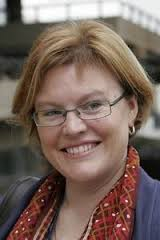 The multi-faceted essence of the Arab-Israeli conflict and Israeli-Palestinian war is territorial, political, ideological, and religious – a convulsive confrontation between the mutually exclusive claims of Judaism and Islam.
The multi-faceted essence of the Arab-Israeli conflict and Israeli-Palestinian war is territorial, political, ideological, and religious – a convulsive confrontation between the mutually exclusive claims of Judaism and Islam.
But a fifth dimension of the conflict is culture – popular culture – embodied in a code of identity that differentiates one human community from another.
Culture is not negotiable or alterable: it is the texture of the life people live, and the local rhythm of things they know from their earliest memories. It is an inbred code of behavior and, as for all peoples, precedes and precludes morality, thought, and judgment.
The reason why the cultural component of the conflict is ignored stems from the fact that in order to appreciate a culture, you basically have to know it from the inside; and outsiders, non-Arabs, are ignorant of Arab culture, and haughtily assume that it has no value.
Add to this obstacle the fact that a native always behaves differently when he is with a foreigner than with a fellow-native. Surface-like conversations between people from different cultures can reveal very little. To call the Arabs rhetorically flexible is a kind way to infer their masterful command of deception.
It is Arab culture in particular, atavistic and organic, encased in the old binding from its historical origin, which must be addressed in order to better explore the intractability of the long Arab-Israeli rivalry
1
Arab culture is a family-clan-national social reality. An Arab owes absolute and blind loyalty to the group of his birth. He belongs to family and village, as a Bedouin belongs to his tribe. You can’t change your tribe, and you don’t change your family; and no other social framework demands more adhesion than blood relations. It follows from this premise that the Arab mistrusts outsiders. For the Arabs, the Israelis are the ‘others’, suspected of manipulation and treachery, and a permanent adversary and enemy, as taught in the Arabic Koran.
2
For the Arabs, language reflects culture in a way that prevents it being a vehicle for direct and clear communication. Words are used to impress, deflect intentions, disarm interlocutors, confuse listeners, and offer promises never to be fulfilled. The cultural subtext in discussions and negotiations with Arabs is often garnished in polite commitments and even written agreements. But there is little conviction to adhere to the summary accord because the culture code calls for gingerly saying what the other wants to hear; then agreeing to an appointment never to be kept, or promising a phone call that will never come. The Israelis were enthused that the Palestinians moved toward peace in the Oslo Accord, but it was followed by blood and murder, not reconciliation and brotherhood.
3
For the Arabs, the past defines the present because history is the anchor for all aspects of identity and aspirations. There is a mythological fascination with ancestors – as for the contemporary Salifiyya movement – combined with an axiomatic belief that sees the future as necessarily emerging from and even repeating the glorious Arab past. This contributes to an iron-will and patience until victory is assured. For the Arabs — Israel beware — never forget any perceived ill act against them. The early Islamic days of conquest and caliphate will be renewed, even if the shift in power takes forever.
4
Arab self-consciousness, spared any identity crisis, provides a psychological foundation for imposing the collective will upon others. To be a Muslim and an Arab, as Allah’s chosen people, launches the Arab on a path of self-justification, whose flip-side is to blame the non-Arabs for all Arab misfortunes and failures. Israel is always excoriated for crimes of aggression and violence. The composed Arab never doubts that justice is on his side: he can do no wrong. Thus, all the Arab-Israeli wars since 1948 are blamed on Israel. Considering that self-criticism is an ancient Jewish practice, Arab self-justification creates an imbalanced ethical equation that demoralizes the Jews while radicalizing the Arabs. In short, the Arabs seek victory, not peace.
5
Islamic truth claims, as in Koranic deviations from Biblical narratives, do not require proof or evidence, or even common sense validity. The Arabs are not perturbed by the lack of facts; their discourse is internal and self-enclosed, as reality is in their mind and not in the external objective world. The Arab mind-set inhabits a world of entrenched fantasy or diabolical conspiracy theories. Note the revelatory comment by Anwar Sadat that ‘all life is play-acting’. He was one to know. In 1993 Arafat demonstrated his theatrical adeptness at the Oslo signing ceremony at the White House.
*
It is essential to unlock the Arab culture code, and cease viewing the Middle East through a Western prism that leads only to delusion, disdain, and a host of ill-consequences and dashed hopes.

